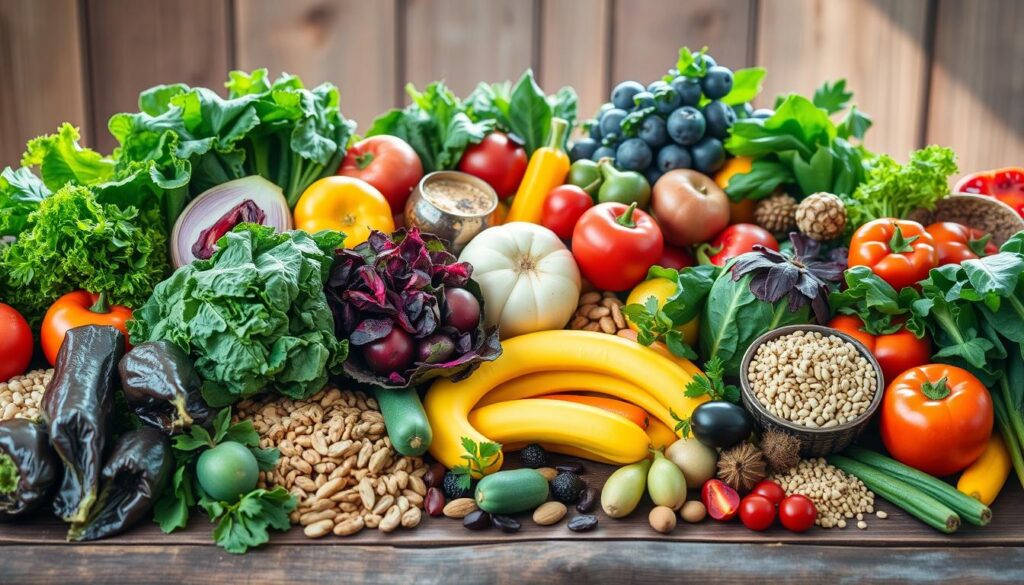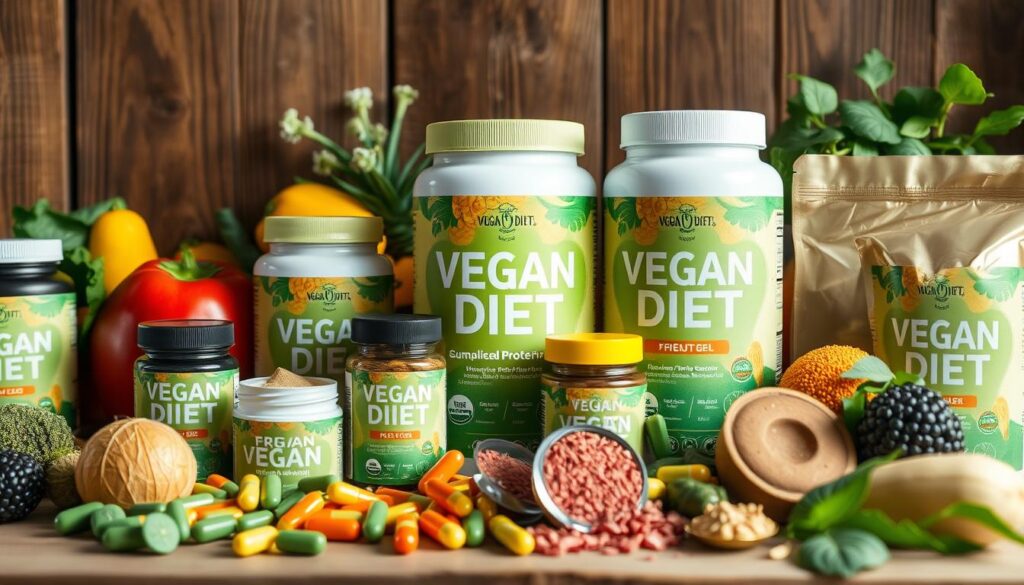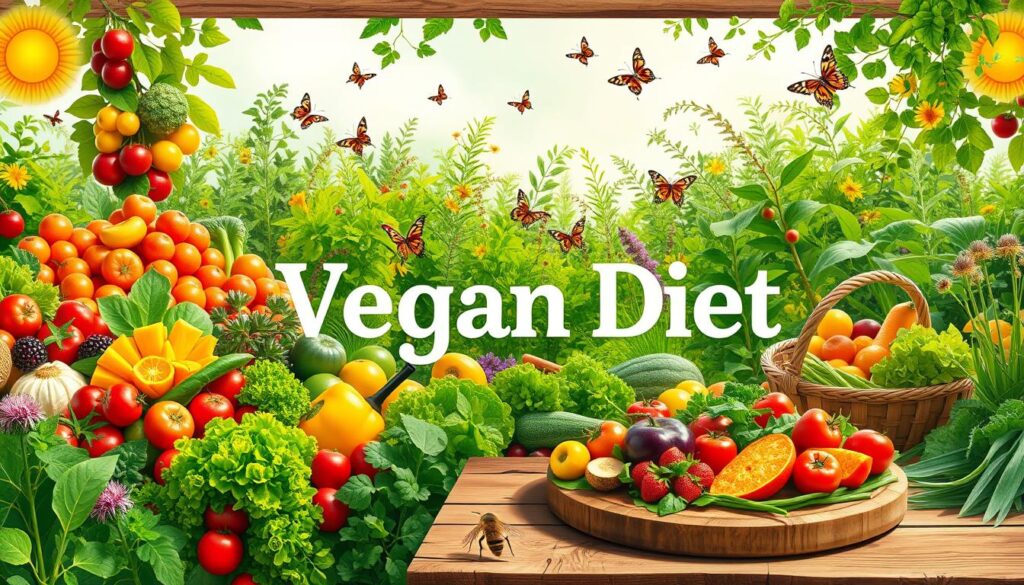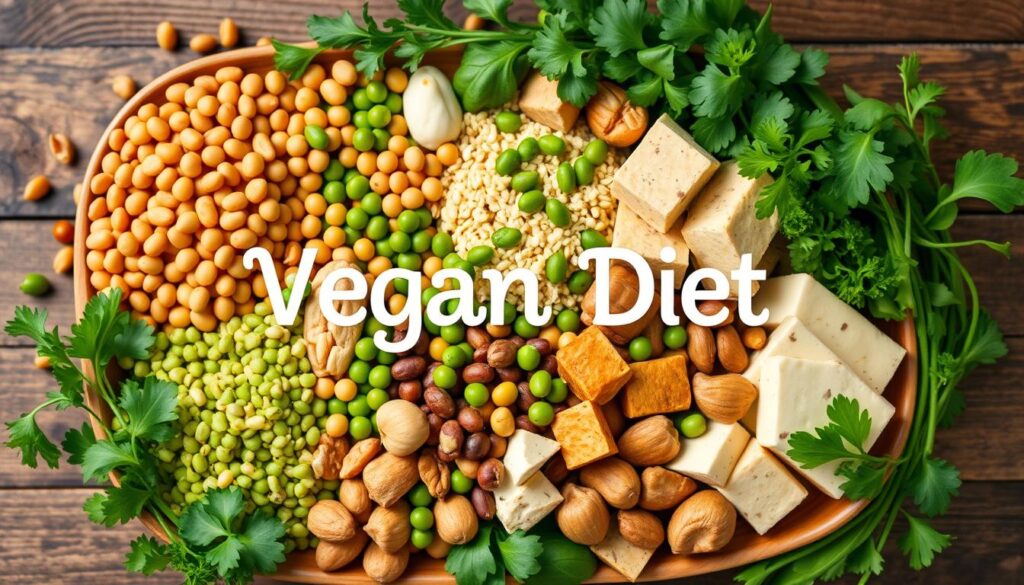Are you curious about the transformative power of a vegan diet? Embracing a plant-based lifestyle can unlock a world of health, ethical, and environmental benefits. But where do you begin? This comprehensive guide will unravel the fundamentals of vegan diet, explore its plant-based nutrition principles, and provide practical steps to transition to a cruelty-free lifestyle in India.

The decision to go vegan is a profound one. It’s often rooted in a deeper awareness of our impact on the planet and all living beings. Whether you’re motivated by personal health, animal welfare, or environmental sustainability, this journey offers a transformative path towards a more compassionate and conscious way of living.
Understanding the Fundamentals of a Vegan Diet
Going vegan is more than just cutting out meat. It’s a lifestyle choice that promotes ethical eating and living sustainably. At its heart, a vegan diet focuses on plant-based nutrition. This approach aims to offer a balanced and nutritious way to eat.
Key Principles of Plant-Based Nutrition
A vegan diet centers on whole, unprocessed plant foods. These include fruits, vegetables, legumes, whole grains, nuts, and seeds. These foods are packed with vitamins, minerals, and fiber. They are key for staying healthy.
Common Misconceptions About Veganism
Many think veganism is restrictive or unbalanced. But, a well-planned vegan diet can give you all the nutrients you need. This includes protein, calcium, and iron. Another myth is that vegans lack certain nutrients. With the right meal planning and supplements, this can be fixed.
Health Benefits and Considerations
Following a vegan diet can lead to many health benefits. These include lower risks of chronic diseases, better heart health, and easier weight management. Yet, it’s crucial to watch out for nutrient deficiencies. Always consult with a healthcare professional to ensure your vegan diet is complete.
“The vegan diet is not just a dietary choice; it’s a lifestyle that promotes meat-free eating, ethical consumption, and sustainable living.”
| Nutrient | Importance | Good Vegan Sources |
|---|---|---|
| Protein | Essential for growth, repair, and maintenance of body tissues. | Tofu, tempeh, seitan, legumes, nuts, and seeds. |
| Calcium | Crucial for bone health and muscle function. | Leafy greens, fortified plant-based milk, tofu, and almonds. |
| Iron | Necessary for the production of red blood cells and oxygen transport. | Lentils, spinach, cashews, and fortified cereals. |
Essential Nutrients in Plant-Based Eating
Starting a vegan diet means getting all the nutrients your body needs from plant-based nutrition. This part talks about the important vitamins, minerals, and macronutrients for a cruelty-free lifestyle.
Protein Power
Many think a vegan diet lacks protein. But, it’s full of high-quality protein from plant-based foods. Legumes, soy products, nuts, and seeds are great sources for your daily protein needs.
Iron and Calcium
Iron and calcium are key nutrients for a plant-based nutrition diet. Leafy greens, fortified plant-based milks, and dried fruits are excellent choices. They help you get enough of these essential minerals.
Omega-3s and More
Omega-3 fatty acids, found in fish, are also in walnuts, flaxseeds, and algae-based vegan supplements. Also, eat a variety of colorful fruits and vegetables. They give you a mix of vitamins, minerals, and antioxidants.
“A balanced vegan diet can provide all the nutrients your body needs to thrive.”
By focusing on these key nutrients through plant-based nutrition, you can stay healthy and well on your vegan path.

Transitioning to a Cruelty-Free Lifestyle
Going vegan is more than just eating differently. It’s about caring for all living beings. Starting this journey can be tough but rewarding. This guide will help you take the first steps, deal with social challenges, and find support.
Steps to Becoming Vegan
Starting your vegan journey is a step-by-step process. Begin by swapping dairy for plant-based milks like almond or oat. Then, add more whole, plant-based foods to your diet. Explore tasty vegan recipes to keep things interesting.
Dealing with Social Challenges
Dealing with others can be tough when you choose veganism. Friends and family might not get it at first. Be kind and explain why you care about animal welfare and ethical consumption.
Building a Support System
Having a supportive community is key. Look for vegan groups online or in your area. These places offer advice, recipes, and a sense of belonging
| Benefits of a Vegan Lifestyle | Challenges of Transitioning |
|---|---|
| Reduced environmental impact Improved animal welfare Potential health benefits | Social pressure and misconceptions Adjusting to a new way of cooking and dining Ensuring adequate nutrient intake |

Remember, going vegan is a personal journey. Be kind to yourself as you take small steps. With support, you can live a cruelty-free life that reflects your values.
Plant-Based Protein Sources and Meat Alternatives
More people are interested in meatless recipes and meat-free eating. This has led to a rise in plant-based protein sources and meat alternatives. These options are great for vegans and vegetarians. They also appeal to those who want to eat less meat and try sustainable diets.
Legumes like lentils, chickpeas, and beans are packed with plant-based protein. Tofu and tempeh, made from soybeans, are versatile and tasty. Seitan, a wheat-based protein, can be marinated and cooked to taste like meat.
New meat substitutes are also hitting the market. There are soy-based burgers, plant-based ground “meat,” and even chicken-like alternatives. These products let people enjoy meat’s taste and texture without the animal products.
| Plant-Based Protein Source | Nutritional Benefits | Culinary Applications |
|---|---|---|
| Lentils | High in fiber, iron, and folate | Soups, stews, curries, dals |
| Chickpeas | Rich in protein, fiber, and minerals | Hummus, roasted snacks, salads |
| Tofu | Excellent source of plant-based protein | Stir-fries, curries, marinated dishes |
| Seitan | High in protein, low in fat | Grilled, sautéed, or baked meat alternatives |
If you’re vegan, vegetarian, or just want to try meatless recipes, there’s a lot to explore. The variety of plant-based proteins and meat alternatives can make your cooking more exciting. They support a meat-free eating lifestyle.

Navigating Dairy-Free Options and Substitutes
Starting a vegan lifestyle doesn’t mean you’ll miss out on creamy flavors. Plant-based alternatives have grown in popularity. Now, you can find many dairy-free options for your cravings. Try non-dairy milk, vegan cheese, and butter substitutes in your recipes and meals.
Non-Dairy Milk Alternatives
There are many plant-based milk alternatives like soy, almond, oat, cashew, and coconut milk. They’re great for baking, cooking, or drinking on their own. Try different types to find what you like best.
Vegan Cheese and Butter Options
The market for dairy-free cheese and butter has grown a lot. You can find plant-based options that taste and feel like the real thing. Use them for grilled cheese, baked goods, and more.
Plant-Based Desserts and Sweets
You don’t have to give up sweets to be vegan. There are many dairy-free desserts and sweets out there. Enjoy cakes, ice creams, and chocolates made with plant-based ingredients.
FAQ
What is a vegan diet and how does it differ from a vegetarian diet?
A vegan diet is all about eating plants and avoiding animal products. This means no meat, fish, eggs, dairy, or honey. Vegetarian diets, on the other hand, exclude meat, fish, and poultry but might include dairy and eggs.
What are the main health benefits of a vegan diet?
A vegan diet can help lower your risk of heart disease, diabetes, some cancers, and obesity. It’s packed with fiber, antioxidants, and plant compounds that boost health.
How can I ensure I’m getting all the necessary nutrients on a vegan diet?
To get all the nutrients, eat a variety of plant-based foods. Include whole grains, legumes, nuts, seeds, fruits, and veggies. You might also need vitamins B12, D, and omega-3s.
What are some good sources of plant-based protein?
Great protein sources are tofu, tempeh, seitan, legumes, nuts, seeds, and quinoa. Adding these to your meals helps meet your protein needs.
How can I handle social challenges when transitioning to a vegan lifestyle?
Dealing with social situations as a vegan can be tough. Having a supportive network and bringing your own food helps. Be patient and educate others about your choices.
Are there any downsides or potential risks to a vegan diet?
While vegan diets are nutritious, watch out for vitamin B12, iron, calcium, and omega-3 deficiencies. Proper meal planning and supplements can prevent these issues.
How can I find affordable and accessible vegan options in India?
Vegan products in India are getting easier to find. Many stores and online platforms offer affordable plant-based milk, meat substitutes, and dairy-free options.
